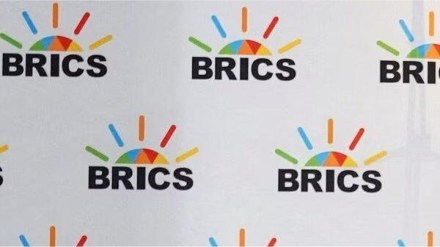The BRICS group of nations, consisting of Brazil, Russia, India, China, and South Africa, has extended invitations to Argentina, Egypt, Ethiopia, Iran, Saudi Arabia, and the UAE, marking the first phase of its expansion. This expansion reflects a consensus among BRICS members on guiding principles, criteria, and procedures after careful deliberation. The move is set to take effect from January 1, 2023.
With over two dozen countries applying for membership, including UAE, Saudi Arabia, Egypt, Argentina, and Indonesia, the expansion process has drawn significant attention. Notably, Indonesia didn’t make it in the first phase, but Iran’s membership has been approved for January 2024.
BRI & New Members
The newcomers share common ground as participants in China’s Belt and Road Initiative (BRI). China’s push for expansion, supported by South Africa and Russia, aligns with the BRICS bloc’s aspiration for a more robust presence on the global stage. It’s worth noting that India, despite not joining the BRI, fully supports the expansion as a means to enhance BRICS’ collective efforts.
Prime Minister Narendra Modi expressed his optimism about the expansion, stating that it will reinforce BRICS as an organization and invigorate their collaborative endeavors. The addition of new members is seen as a step toward strengthening the multipolar world order and infusing fresh energy into the cooperation within the bloc.
The decision to expand the BRICS bloc is strategic, aligning with its core principles and inclusive approach to collaboration. By expanding its representation to encompass over a third of the world’s GDP, BRICS establishes itself as a significant global force with amplified influence, says Prof Karin Costa Vazquez, Executive Director of the Centre for African Latin American and Caribbean Studies (CALACS) OP Jindal Global University.
The inclusion of new member states brings diversified expertise and resources to the alliance, enhancing its capabilities and its ability to influence global policies.
This expansion reflects the evolving landscape of international relations and the BRICS bloc’s commitment to practical cooperation beyond symbolic gestures. According to Prof Vazquez, the establishment of institutions like the New Development Bank (NDB) and the Contingent Reserve Arrangement (CRA) further underscores their dedication to providing financial support and stability among member nations.
In a world marked by established economic powers, the BRICS bloc’s efforts to amplify its collective voice stand as a testament to its growing influence. With a larger economic footprint, the bloc is better poised to tackle pressing global challenges, including climate change, sustainable development, and geopolitical stability. This strategic move sends a message that institutions must adapt to changing times, with the potential to inspire reforms in other global establishments.
In conclusion, the BRICS bloc’s expansion through the inclusion of new member states signals a commitment to collaborative and practical cooperation. By welcoming nations that share a common vision, the bloc strengthens its position as a formidable global entity, capable of shaping international agendas and addressing complex challenges.
New members react
Ethiopian Prime Minister Abiy Ahmed said the decision by the BRICS group of nations to invite Ethiopia to join was “a great moment” and that his country wanted to cooperate for “an inclusive and prosperous global order”.
